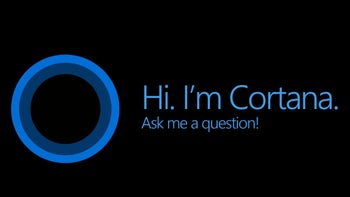Microsoft's ill-fated Siri and Google Assistant rival is gone for good

Although Microsoft managed to beat Google to the punch by following Apple and Amazon's suit with the launch of its very own virtual assistant way back in 2014, Cortana never achieved Siri or Alexa's levels of mainstream popularity and widespread adoption on devices as diverse as mobile phones, computers, and smart speakers.
It didn't take long for Google Assistant to become incredibly successful after its 2016 debut either, and just in case it wasn't abundantly clear prior to January 2019, the somewhat surprising partnership between the search giant and the Redmond-based company basically sealed Cortana's fate once and for all.
After living on borrowed time for more than two years now, the once promising but never fully grown AI-powered digital assistant is breathing its last in front of our very eyes today. As already confirmed last summer (without putting a specific date on it), the Cortana mobile app will no longer be supported as of tomorrow, April 1.
That's sadly no (sick) joke, and it essentially means the voice assistant will stop working altogether on both Android handsets and iPhones. Previously created content, including reminders and lists, has already been removed from your mobile device as of March 31, although you can still find everything on your Windows computer.
Of course, we're pretty sure a very small number of users will actually be impacted by this completely predictable and almost overdue shutdown, but at the same time, some people who may have believed in Cortana's skills and potential early on are likely to feel sad nevertheless that the inevitable is happening.
While Microsoft never built an Echo, HomePod, or Google Home alternative of its own to showcase said skills, Harman Kardon did, and unsurprisingly, the largely unsuccessful Invoke smart speaker recently dropped its Cortana support as well.
This painful death reminds us a lot of Windows Mobile's demise, which was also a long time coming when it was finally sealed in 2017. Fortunately for Microsoft, Windows PCs and Surface devices are doing fairly well while its cloud business is absolutely killing it.














Things that are NOT allowed: